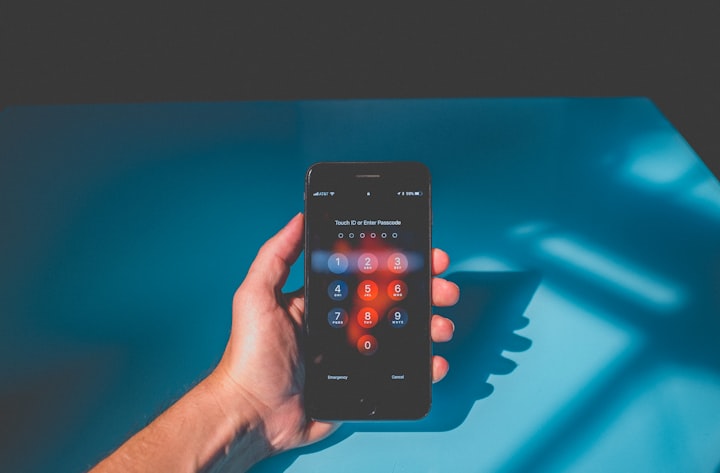Why Mobile Device Security? Empowering you to stay safe and secure.
Effective mobile security offers robust features to prevent these attacks from occurring.

Introduction to Mobile Device Security
IoT devices face various attacks: DDoS overwhelms with requests, malware steals data or controls devices, and man-in-the-middle intercepts and alters communication. To protect ourselves, we must update device software regularly, use strong passwords, and connect only to secure networks. These precautions safeguard against vulnerabilities and ensure a safe and connected experience in the smart world.
What is mobile device security?
Mobile security encompasses the strategies and approaches employed to safeguard mobile devices, including smartphones, tablets, and laptops, against unauthorized entry, theft, malicious software, and various other forms of security risks.
Given the abundance of valuable personal and professional data stored on mobile devices, including contact details, emails, financial information, and other classified data, they become attractive targets for cybercriminals. Consequently, it becomes imperative to adopt precautionary measures to shield your mobile devices from potential security vulnerabilities.
Mobile device security includes a variety of techniques such as:
Enhancing Mobile Device Security:
Strengthening Password Protection: Establishing robust passwords, passcodes, or utilizing biometric authentication to safeguard device access.
Data Encryption: Employing encryption techniques to protect data stored on the device, preventing unauthorized access.
Firewall Implementation: Utilizing firewalls to block unauthorized access attempts, safeguarding both the device and the network it connects to.
Anti-virus Software: Installing reliable antivirus software to detect and prevent malware infections, enhancing overall device security.
App Permission Management: Carefully managing app permissions to ensure that installed applications only have access to the necessary data, minimizing potential risks.
Regular Software Updates: Keeping the device's operating system and software up-to-date with the latest security patches and fixes to address vulnerabilities.
Remote Data Wiping: Equipping the device with the capability to remotely erase its data in case of theft or loss, protecting sensitive information from falling into the wrong hands.
By implementing these measures, you can significantly enhance the security of your mobile devices, safeguarding both personal and business data from potential cyber threats.
Why mobile security is important?
Here are several reasons highlighting the importance of mobile security:
Safeguarding Personal Data: Mobile devices store a wide range of sensitive personal information, including contacts, emails, photos, and financial details. Mobile security measures are crucial in protecting this data from unauthorized access, ensuring user privacy remains intact.
Preventing Cyber Attacks: Mobile devices are highly vulnerable to cyber-attacks, with cybercriminals utilizing various techniques like malware, phishing attacks, and hacking to steal personal information. Effective mobile security offers robust features to prevent these attacks from occurring.
Ensuring Secure Transactions: Mobile devices are frequently used for financial transactions, including online banking, mobile payments, and shopping. Mobile security plays a vital role in guaranteeing the security of these transactions and thwarting any potential financial fraud.
Mitigating Data Loss Risks: Mobile devices can be easily misplaced or stolen, resulting in significant data loss. Mobile security measures provide essential backup and encryption features, actively working to protect data even if the device falls into the wrong hands.
Meeting Compliance Requirements: Numerous organizations have specific compliance requirements that necessitate the implementation of mobile security to safeguard sensitive data. By adhering to these requirements, organizations can ensure they are actively protecting their data assets.
Types of mobile device security measure
There are multiple options available for individuals and organizations to implement mobile security measures, effectively safeguarding their devices against a range of security threats. Here are some of the most prevalent types of mobile device security:
Authentication and Access Control: This entails utilizing diverse authentication methods such as passwords, passcodes, biometrics (fingerprint or facial recognition), and two-factor authentication. These methods help regulate access to mobile devices and their associated data.
Data Encryption: Data encryption involves converting data into a code that can only be deciphered using the correct decryption key. Encryption can protect data stored on the device as well as data transmitted over networks, ensuring it remains inaccessible to unauthorized individuals.
Mobile Device Management (MDM): MDM comprises policies, tools, and technologies employed to manage and secure mobile devices. It includes monitoring device activity, controlling access to data, and enforcing security policies to maintain device integrity.
Mobile Application Management (MAM): MAM focuses on securing data and applications running on mobile devices. It encompasses controlling app and data access, securing app data, and enforcing app usage policies to prevent unauthorized access or data leakage.
Mobile Threat Defense (MTD): MTD is a security solution designed to detect, analyze, and respond to security threats targeting mobile devices. It identifies and mitigates risks such as malware, network attacks, and vulnerabilities that could compromise device security.
Remote Wipe: This feature enables users or IT administrators to remotely erase all data on a device in case of loss or theft. It ensures that sensitive information does not fall into the wrong hands.
Network Security: Network security measures such as firewalls, virtual private networks (VPNs), and secure Wi-Fi connections provide protection against network-based attacks and data breaches. They establish secure communication channels and prevent unauthorized access to mobile devices and their data.
By implementing these diverse mobile device security measures, both individuals and organizations can significantly enhance the protection of their devices, data, and networks against potential cyber threats.
About the Creator
Jason Davis
With over two decades of experience in the field, Jason Davis is a seasoned cyber security expert. His expertise extends across diverse systems, from small-scale businesses to large multinational organizations.






Comments
There are no comments for this story
Be the first to respond and start the conversation.